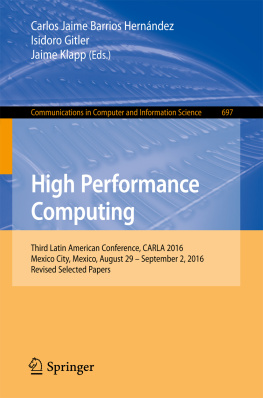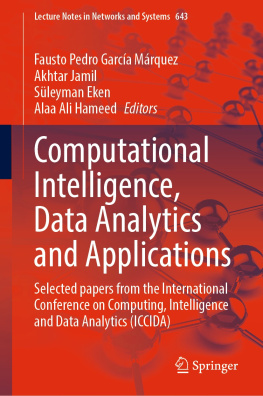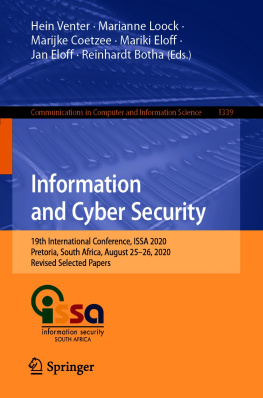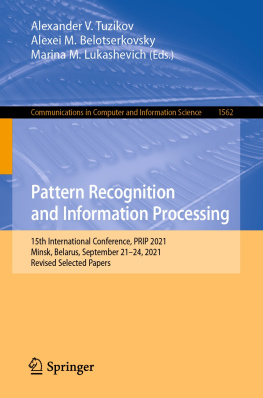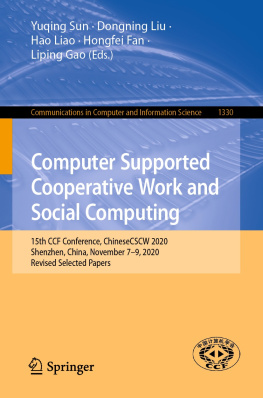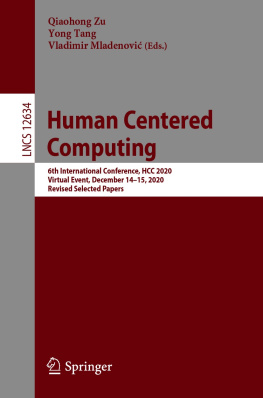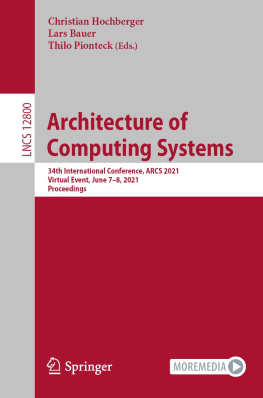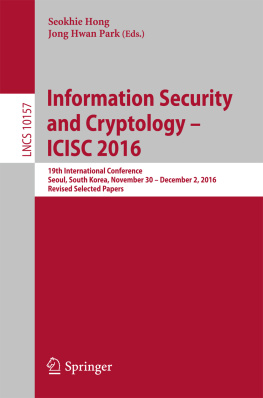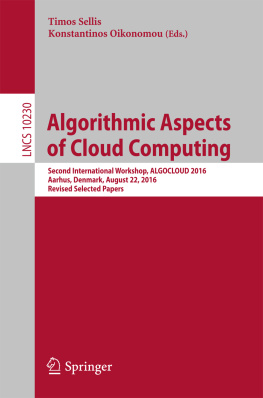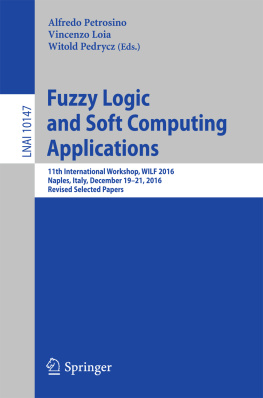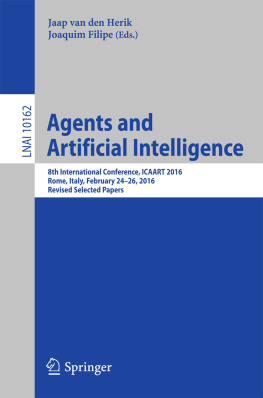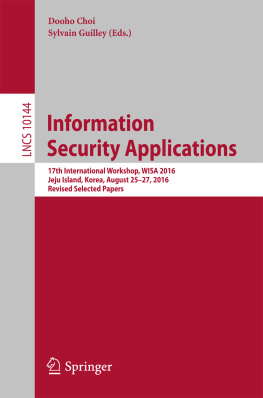Barrios Hernández Carlos Jaime - High Performance Computing: Third Latin American Conference, CARLA 2016, Mexico City, Mexico, August 29-September 2, 2016, Revised Selected Papers
Here you can read online Barrios Hernández Carlos Jaime - High Performance Computing: Third Latin American Conference, CARLA 2016, Mexico City, Mexico, August 29-September 2, 2016, Revised Selected Papers full text of the book (entire story) in english for free. Download pdf and epub, get meaning, cover and reviews about this ebook. City: Cham, year: 2017, publisher: Springer International Publishing, genre: Computer. Description of the work, (preface) as well as reviews are available. Best literature library LitArk.com created for fans of good reading and offers a wide selection of genres:
Romance novel
Science fiction
Adventure
Detective
Science
History
Home and family
Prose
Art
Politics
Computer
Non-fiction
Religion
Business
Children
Humor
Choose a favorite category and find really read worthwhile books. Enjoy immersion in the world of imagination, feel the emotions of the characters or learn something new for yourself, make an fascinating discovery.
- Book:High Performance Computing: Third Latin American Conference, CARLA 2016, Mexico City, Mexico, August 29-September 2, 2016, Revised Selected Papers
- Author:
- Publisher:Springer International Publishing
- Genre:
- Year:2017
- City:Cham
- Rating:4 / 5
- Favourites:Add to favourites
- Your mark:
- 80
- 1
- 2
- 3
- 4
- 5
High Performance Computing: Third Latin American Conference, CARLA 2016, Mexico City, Mexico, August 29-September 2, 2016, Revised Selected Papers: summary, description and annotation
We offer to read an annotation, description, summary or preface (depends on what the author of the book "High Performance Computing: Third Latin American Conference, CARLA 2016, Mexico City, Mexico, August 29-September 2, 2016, Revised Selected Papers" wrote himself). If you haven't found the necessary information about the book — write in the comments, we will try to find it.
Barrios Hernández Carlos Jaime: author's other books
Who wrote High Performance Computing: Third Latin American Conference, CARLA 2016, Mexico City, Mexico, August 29-September 2, 2016, Revised Selected Papers? Find out the surname, the name of the author of the book and a list of all author's works by series.
High Performance Computing: Third Latin American Conference, CARLA 2016, Mexico City, Mexico, August 29-September 2, 2016, Revised Selected Papers — read online for free the complete book (whole text) full work
Below is the text of the book, divided by pages. System saving the place of the last page read, allows you to conveniently read the book "High Performance Computing: Third Latin American Conference, CARLA 2016, Mexico City, Mexico, August 29-September 2, 2016, Revised Selected Papers" online for free, without having to search again every time where you left off. Put a bookmark, and you can go to the page where you finished reading at any time.
Font size:
Interval:
Bookmark:
HPC Infrastructure and Applications
- (i) Static attributes : the type of attributes which show a very slow rate of change. For example operating system, processor clock frequency, total storage capacity or network bandwidth.
- (ii) Dynamic attributes : in this class, we can find the attributes related with the use of the system which change as the usage evolves, for example free memory, processor usage, available storage or network usage.
- Random : Every node chooses randomly another node to query information from. There is no structure at all. Usually this policy is used as baseline behavior to be compared with.
- Hierarchical: In this kind of policy, a hierarchy is established beforehand and the resource information is sent using this fixed structure. In this way, the nodes at the top of the hierarchy exchange information with the ones below them. This is the standard actually used by Grids.
- Super Peer: Some nodes are defined as super-peers working like servers for a subset of nodes and as peers in the network of super-peers. In this way, a two level structure is defined in which the peers nodes are only allowed to communicate with a single super-peer and the cluster defined by it.
- Best-Neighbor : Some information about each answer is stored and the next neighbor to query is selected using the quality of the previous answers. At the beginning, the node has no information about its neighbors, thus it chooses randomly. As information is collected, the probability of choosing a neighbor randomly is inversely proportional to the amount of information stored.
Font size:
Interval:
Bookmark:
Similar books «High Performance Computing: Third Latin American Conference, CARLA 2016, Mexico City, Mexico, August 29-September 2, 2016, Revised Selected Papers»
Look at similar books to High Performance Computing: Third Latin American Conference, CARLA 2016, Mexico City, Mexico, August 29-September 2, 2016, Revised Selected Papers. We have selected literature similar in name and meaning in the hope of providing readers with more options to find new, interesting, not yet read works.
Discussion, reviews of the book High Performance Computing: Third Latin American Conference, CARLA 2016, Mexico City, Mexico, August 29-September 2, 2016, Revised Selected Papers and just readers' own opinions. Leave your comments, write what you think about the work, its meaning or the main characters. Specify what exactly you liked and what you didn't like, and why you think so.

